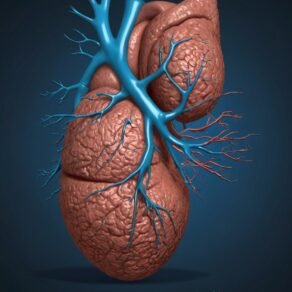The International Classification of Diseases, 10th Edition (ICD-10), plays a pivotal role in the healthcare landscape, providing standardized codes for various medical conditions. This article aims to decode the ICD-10 codes related to fatty liver, offering insights into the diagnostic landscape, implications, and the broader significance of these codes in healthcare.
Unveiling Fatty Liver ICD-10 Codes
1. K76.0 – Fatty (change of) liver, not elsewhere classified:
- Significance: This code represents the primary category for fatty liver, encompassing cases not specified elsewhere in the ICD-10 system.
2. K76.89 – Other specified diseases of liver:
- Significance: This code is utilized when specific details about the liver disease, such as the cause or additional characteristics, are identified.
3. Z91.19 – Patient’s noncompliance with other medical treatment and regimen:
- Significance: This code is relevant when noncompliance with medical treatment or lifestyle modifications is noted in the context of fatty liver management.
Implications of Fatty Liver ICD-10 Codes
1. Accurate Diagnosis and Documentation:
- Importance: Fatty liver ICD-10 codes facilitate precise diagnosis, ensuring accurate documentation for healthcare providers.
- Keywords: Accurate Diagnosis, Healthcare Documentation.
2. Healthcare Billing and Reimbursement:
- Importance: Proper coding is essential for healthcare billing and reimbursement processes, impacting financial aspects of patient care.
Understanding the Diagnostic Landscape
1. Additional Codes for Complications:
- Significance: Additional codes may be used to specify complications such as cirrhosis or liver fibrosis in the presence of fatty liver.
2. Coding for Non-Alcoholic and Alcoholic Fatty Liver:
- Significance: Distinct codes differentiate between non-alcoholic and alcoholic fatty liver, providing clarity in diagnostic records.
Navigating the ICD-10 System for Fatty Liver
1. Professional Coding Guidance:
- Importance: Healthcare professionals must stay updated on coding guidelines and seek guidance to accurately navigate the ICD-10 system for fatty liver.
2. Patient Education and Awareness:
- Importance: Educating patients about the significance of ICD-10 codes fosters understanding and encourages active involvement in their healthcare journey.
Conclusion: ICD-10 and Enhanced Fatty Liver Management
Decoding the ICD-10 system for fatty liver is crucial for accurate diagnosis, documentation, and effective healthcare management. This article provides insights into key codes, their implications, and the broader landscape of using ICD-10 in the context of fatty liver. Healthcare professionals and patients alike benefit from a nuanced understanding of these codes, fostering improved communication, precise diagnosis, and enhanced care.





